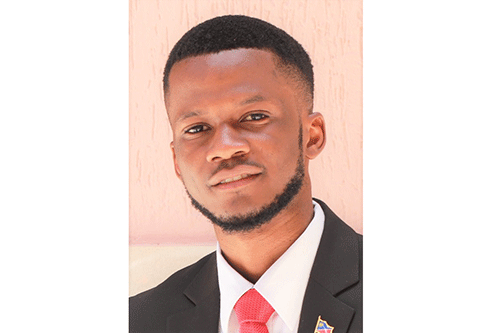The Electoral Commission of Namibia’s (ECN) recent announcement that 91% are eligible voters in the country, appeared to have painted half the picture.
Demographic fatigue seems to be jaded and severe among the young people, with their electoral turnout continuing to decline.
According to the Namibia Statistics Agency, 71.1% of population is under the age of 35. In addition, the Mo Ibrahim Index of African Governance (IIAG) report indicated that around 60% of Africa’s population is younger than 25 years.
One could think that with this type of demographic, the continent could have created the conditions and powerful opportunity in which its greatest asset – the youth – can shine, but instead things appear to be falling apart.
Greatest asset
The same Mo Ibrahim report indicates that from Casablanca to Cape Town, about 60% of African youth think their governments pay lip service to their needs.
In other words, this is to say Africa is the youngest continent and the interval between the median age of Africa’s young population and that of its executive is believed to be about 45 years. The huge question remains how the minority determines the future they won’t live to see and be accountable for.
Science has taught us that humans reach their cognitive peak at around the age of 35, and begin to decline after the age of 45.
In other words, that has prescribed the retirement age to be set at 60 years in most countries.
However, in most African countries, this is an entry level age for assuming office. This demographic divided is at stake and turning sour, if not bitter. The recent upheaval in Kenya against the financial bill passed is an example of how the exclusion of youth is fuelling civil war, conflict, instability, and terrorism.
In quenching their depression, they resort to involvement in the drug abuse and trade, human trafficking, and the black market. All these predicaments underscore the importance of wise leadership and good governance for the future.
Policy interventions
Africa is made up of unitary states, rich in natural resources more than countries in other continents, therefore ratified her policy bond to those of international bodies such as the African Agenda 2063 and the United Nations Sustainable Goals should guide us.
There is better paradigm shift of skills match than that of mismatch between our education provision and the job market.
There is always a comparative advantage and balance of independent to have a youthful population acquainted with the entrepreneurial skills of producing rather than to have that taught of becoming a better employee (of working for others).
There is better meritocracy system that can make the state assembling and associate the best mind in running premier institution and enterprises that will be less of counter-productiveness, corruption and accountability.
The time is now to do away with the past where Africa was the bread-basket of agriculture only, and not a pot of industrialisation.
There is a better way to turn Africa into a barrel of oil, and an architectural gem producer. There is an alternative way to turn Africa’s energy system to a renewable and sustainable one than that of non-renewable, which is destructive to the ozone layer. There is a better chance of making Africa an assembling point than a raw material producer.
*Tio Nakasole is a final MBA student at NUST, and an Economics Honours Degree holder. Currently serving as the Sales and Service Manager at HiFi Corporation Namibia. The views expressed do not represent those of his employer. – theoerastus@gmail.com


